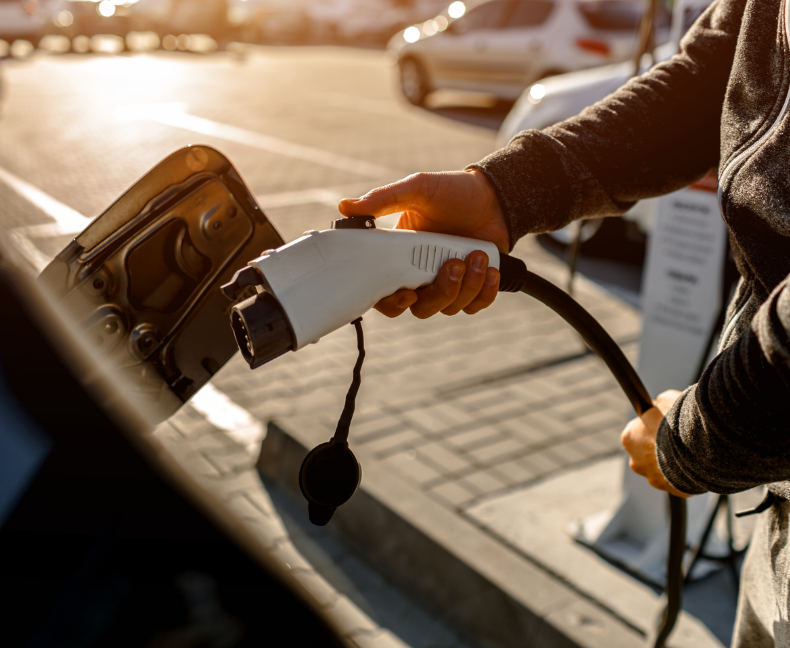Fleet solutions
*Not all products and services are available in all markets. Contact Us to find out more. Product and service descriptions are for illustration purposes only.
Full Service Operating Lease

Full service operating lease or full operational lease means that you’ll have a contract with a fixed monthly cost. The cost normally covers everything that is involved with leasing a car including interest and depreciation, service & maintenance costs, third party insurance and/or fully comprehensive insurance, motor vehicle tax and roadside assistance for breakdown and recovery.
This type of lease has many advantages and is chosen by many customers globally. Other than having a fixed monthly fee, making it easy to plan financially, it also means there is no large financial investment upfront. Leasing companies retain ownership of the vehicle, so it is off balance enabling liquidity in your business. The leasing company will also take all the risk associated with the sale and disposal of the car at the end of the contract whilst taking on the liability of residual values.
- Cost effective way of scaling your fleet, freeing up capital and improving cashflow
- Fixed monthly fee, no unexpected costs and a large range of vehicles to suit all requirements
- Normally includes all costs like maintenance and servicing, removing any stress
- No investment required
- No risk or liability around residual value, sale and disposal
- Hands on account management and driver support
Financial Leasing

Financial leasing is a popular arrangement for companies needing cars, vans and commercial vehicles where Full service operating lease is not suitable. It offers flexibility and tax advantages to eligible companies (depending on your market and type of company) who require one or more vehicles but don’t have the accessible funds to pay up front. As part of a financial leasing agreement you can choose to pay either the entire cost of the vehicle, including interest charges, over an agreed period or alternatively, you can opt to pay lower monthly amounts with a final payment based on the anticipated resale value of the vehicle (otherwise known as the ‘balloon payment’). Throughout the agreement, the vehicle remains the property of the leasing company.
Your business will be able to use the car or van without facing the high upfront cost of a new vehicle, handle the administration of the vehicle, and have the assets show on your company’s balance sheet. At the beginning of the lease, usage parameters for the vehicle are agreed. Providing these restrictions are met, monthly payments and interest rates are fixed for the duration of the contract. At the end of the contract the vehicle can either be sold by the user to an unrelated third party (some funders may handle the disposal in return for a small commission) or alternatively, the user can pay the outstanding “balloon payment” and operate the vehicle under a peppercorn agreement.
- Low up-front costs and fixed monthly payments for the whole agreement
- Able to handle the administration of the vehicle and have the assets show on your balance sheet
- Choose to pay the entire cost of the vehicle over a fixed period of normally 3 years or pay a lower monthly payment with a final payment at the end based on the resale value of the vehicle
- Pay the outstanding balloon payment and then operate the vehicle under a ‘peppercorn agreement.’
- Depending on your country, can provide significant tax advantages
Personal Lease

Personal leasing is an agreement you make for a set period, usually 12-60 months, where you pay fixed monthly payments in return for a car. There are normally three types of personal lease. Personal Contract Purchase (PCP), Personal Contract Hire (PCH) and Lease Purchase (LP). Personal leasing typically requires a deposit upfront and some providers offer flexibility with the amount.
Personal Contract Purchase (PCP) tends to be the most popular option in the personal lease space. A range of models are offered, and a deposit is agreed and paid along with the monthly payment amounts. The monthly payments cover the depreciation of the vehicle over the term of the lease and the lease company will calculate the guaranteed minimum future value. At the end of the lease, the customer can return the vehicle under the terms of mileage, wear & tear and choose another vehicle to lease OR they can purchase the car using the future value figure and the ownership is transferred to the customer.
Personal Contract Hire (PCH) is very similar to PCP but there is no option to purchase the car at the end and its returned to the leasing company. Where Lease Purchase (LP) differs from PCP is that the final figure, the future value, the balloon payment, is compulsory and the vehicle is transferred to the customer.
- PCP – Monthly payments are normally more competitive than PCH or LP – simply hand the vehicle back at the end of the agreement without the stress of selling
- PCH – No worries of depreciation as the car is given back at the end of the agreement
- LP – Option to settle your agreement early by paying any outstanding payments
Specialised Services
Replacement / Relief / Pre-Contract Vehicles

There will be times either before or during a leasing arrangement where a customer might require an alternative short-term vehicle. One or more of a company’s fleet vehicles may be out of action due to an unexpected traffic event or breakdown. A short-term vehicle may be required during the servicing of a lease vehicle and a courtesy car could be provided. In addition, if a car is not in stock or there is unexpected delays in the supply chain, a vehicle can be provided as part of the lease arrangement to ensure the customer can be on the move as soon as possible. All Budget leasing markets provide short term vehicle solutions.
Fleet Management as a Service (FMaaS)

Fleet management as a service (FMaaS) is gaining popularity globally. It is essentially where a leasing or mobility company takes on the management of a company owned fleet of vehicles and every process associated with that. For example, as part of a FMaaS service, leasing and mobility companies can:
- Take on the acquisition and de-fleet/resale of vehicles for a customer
- Source and manage contract hire cars for your fleet
- Manage maintenance, accidents, recovery, repair and corporate risk
- Management of fuel cards, drivers, documentation and administration and logistics
- Provide replacement, rental or other short-term cars and commercial vehicles
- Manage and provide company car schemes
A leasing or mobility company will map out and agree a strategy with the customer meaning that outsourced support can provide increased efficiency for the firm, lowered costs, improved employee satisfaction and retention and therefore, improved client retention.
Grey Fleet Management

A grey fleet is where personal vehicles are used for company business purposes. This often means employees use their own vehicles for business travel and this can give companies an added complexity when managing their fleet processes. Allowing and incentivising drivers to use personal vehicles for business travel can be more cost-effective for smaller, low-mileage companies than managing a fleet of their own vehicles. Key features:
- Tracking business mileage and managing claims and payments
- Driver management (responsibility, documentation, training, duty of care)
- Vehicle management (MOTs, servicing requirements)
- Inventory management
- Telematics – technology to accurately manage mileage, use, accident and collisions
Subscription

Vehicle subscription is a new entrant into the leasing space targeted at the personal user. It sits somewhere between short term car rental and long-term vehicle leasing. The subscription proposition offers a way of getting access to a new or nearly new vehicle, with all the benefits of lease but normally at a higher price, for a shorter, more flexible period. Typically, subscription vehicles contract for anywhere between 1 and 24 months with some providers offering a flexible ‘car-swap’ approach at certain intervals. Some subscription offerings come with insurance included where the all the customer must do is essentially add fuel. Increasingly, car subscription is offered through online channels only with delivery of the vehicle. It can be a method to try new vehicle models or test electric or alternative power train cars.
Short term car hire / Car sharing

Budget is a world famous provider of car rental, globally, operating in approximately 3,400 rental locations in more than 128 countries. We work with tens of thousands of global corporate customers in tech, military, pharmaceuticals, logistics, real estate, manufacturing, finance & insurance and healthcare. We also work with national and local corporate customers providing car and commercial vehicle rentals. Click here to find out more.
Zipcar is the world’s largest car sharing club. Members get 24/7 access to thousands of our cars and vans that live just around the corner! Once you’ve joined you can search, book and unlock all via our handy app. Who needs their own car in the city when you can get access to wheels when you want them? Join Zipcar and you’ll have all the perks of owning a car, without the hassle and cost of running one! We’re all about making city living simpler, cheaper, greener and, well, a bit more fun!
Get in touch
Contact us today to talk about your vehicle leasing and fleet management needs.